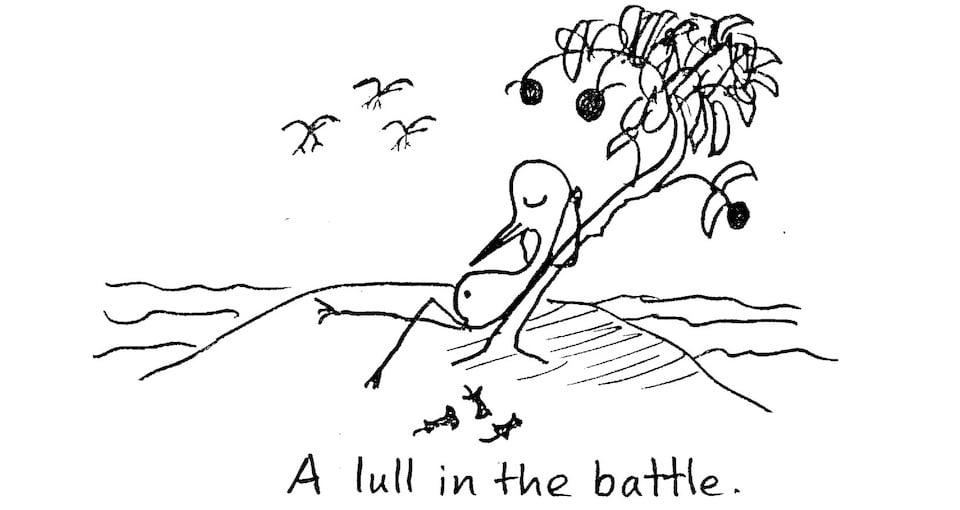Beyond The Human Condition
Page 73 of
Print Edition 5. Politics
THE conscious mind had to defy, resist and battle the ignorance of our older and more established instinctive self or soul. To search for knowledge we had to block out the unjustly condemning ideals of our conscience; to experiment in self-management, we had to be free from its oppression.
On the other hand we had to obey our conscience to a degree and avoid too much blocking out of our soul’s integrative ideals. If we became too angry, egocentric and alienated, we would become lost from the integrative or cooperative ideals, which would lead to social disintegration. We required guidance from our conscience, even though it unjustly condemned us.
What we needed was a balance between freedom and oppression of intellect (or between repression and liberation of soul). Our ‘development’ has been our ‘progress’ towards understanding. Development required that our soul be repressed to some degree, but too much and we would never find understanding. Progress had to be balanced with restraint.
The Statue of Liberty in New York symbolises freedom, but what do we mean by freedom? Freedom from what? To search for understanding we needed freedom from thePage 74 of
Print Edition oppression of the unjustly condemning integrative ideals. The penalty for being free to search for knowledge was that we became angry, egocentric and alienated. As compensation for having to suffer such self-corruption we surrounded ourselves with material comforts. Materialism was the poor substitute for spiritualism — for the ability to explain why we were good and not bad. Money or capital was needed to supply these material rewards. Materialism and capitalism accompanied freedom. As well we sought contrived success through power and glory to satisfy our embattled egos.
There’s no more vivid symbol of adventurous, courageous, heroic, defiant, hedonistic and exhausted humanity than the city of New York, where Times Square symbolises life in upset. It’s where drug pushers, prostitutes, muggers and beggars work the footpaths while expensive, chauffeur-driven limousines cruise by. America has certainly been the land of the free and the home of the brave.
At the other extreme are socialism and communism with their emphasis on being social or communal (i.e. integrative). In these political systems everything but the integrative ideal was denied. As Karl Marx said The philosophers have only interpreted the world in various ways; the point is [not to understand the world but] to change it (Theses on Feuerbach, written in German in 1845). By ‘change it’ he meant make it social or integrated. Socialism and communism had symbols such as the hammer and sickle, the humble tools of work, and big billboard posters showing everyone ideally striving and pulling together. The flaw in such systems was that they were oppressive and lacked incentive. The need to search for understanding was oppressed, as was the need to indulge and pamper ourselves when we became corrupted. Communism and socialism tried to stop thinking and disallow upset. Since neither could be stopped completely, such regimes tended to be unrealistic. Also without incentive or reward for unavoidable upset, boredom and stagnation crept in.
Page 75 of
Print Edition Freedom-stressing capitalism found understanding for the intellect but was corrupting of soul. Communism and socialism fostered the integrative soul but oppressed the intellect. Both positions had good and bad elements.
These were the extreme positions. The idea in democracy was for everyone to vote and a majority opinion to be found. We voted left wing to emphasise socialistic policies if we thought our community was too corrupt, or right wing for free enterprise policies if we thought our community was too oppressed. In this way balance was sought.
We had to repress our conscience while it unfairly criticised our conscious mind. The difficulty in developing understanding was to find a balance between freedom for the intellect and liberation of the soul.
With its criticism of our intellect removed, repression of our soul can end. Our intellect and instinct or conscious and conscience are now reconciled. The left and right wings of politics are now reconciled. Peace comes to all the warring factions.
They will beat their swords into ploughshares and their spears into pruning hooks. Nation will not take up sword against nation, nor will they train for war any more.
The Bible, Isaiah 2:4.
The intellect is the master integrative tool. It’s God or Development’s greatest invention. It has the potential to ‘knowingly’ manage the development of order of matter on Earth. With its insecurity at last overcome, it is now free to realise its great potential.
While humans have appeared to be divisive or disintegrative, the full or greater truth is that we are not. At all times we have been committed to integration. We can see now that upset was a necessary part of the search for understanding; each of us had to live with a soul that unjustly criticised and condemned us.
Page 76 of
Print Edition Worse still the sunshine, the rain, the trees and the animals, all things natural, were friends of our original instinctive self or soul. By association, they too criticised us. Nature was not a friend of our apparently bad mind. We have been unjustly unloved and ostracised by nature for 2 million years!

Drawing by Jeremy Griffith © Fedmex Pty Ltd 1991


